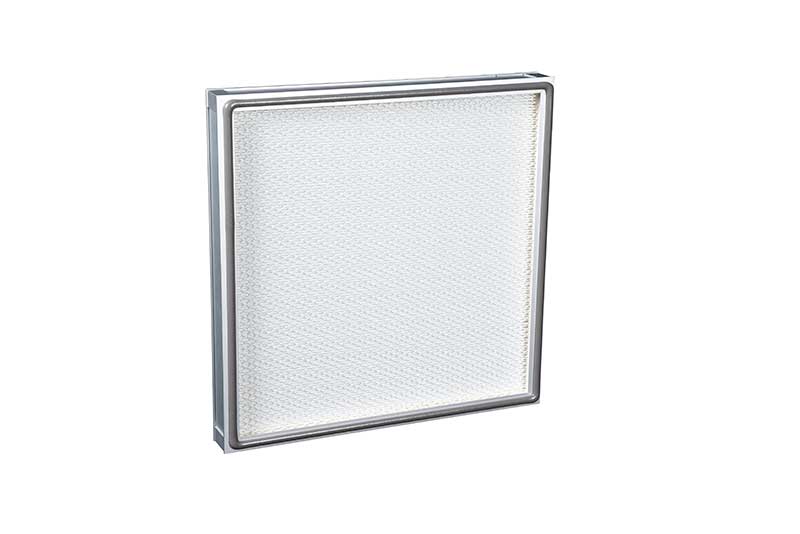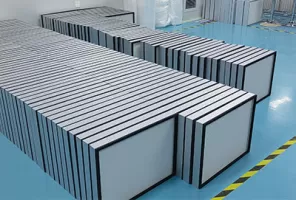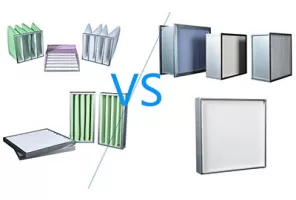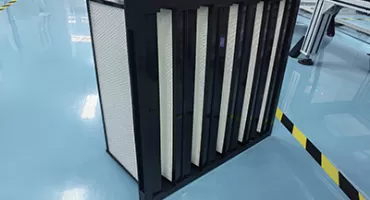 September 27, 2024
September 27, 2024
In many industries, from laboratories to manufacturing facilities, maintaining a clean and sterile environment is critical. Whether you're working in a research lab, pharmaceutical production, or electronics manufacturing, airborne particles and contaminants can jeopardize your work. That’s where HEPA filters for laminar flow hoods come in, ensuring a controlled, contamination-free space.

A HEPA (High-Efficiency Particulate Air) filter is designed to capture at least 99.97% of airborne particles that are 0.3 microns or larger in size. These filters are essential in creating a sterile environment by removing contaminants such as dust, pollen, and microorganisms from the air.
A laminar flow hood is a type of cleanroom equipment that provides a continuous flow of filtered air over a workspace. The goal is to maintain a turbulent-free airflow that pushes airborne contaminants away from sensitive materials or processes.
In these hoods, the air passes through a HEPA filter, which ensures that the air entering the workspace is free from harmful airborne particles and microbial contamination. The airflow uniformity in a laminar flow hood ensures that contaminants don’t linger or interfere with critical processes.
HEPA filters work by forcing air through a fine mesh that traps particulate matter such as dust, bacteria, and other small particles. They are vital for environments that require cleanroom filtration, such as Class 100 cleanrooms, which are defined by the number of particles per cubic foot of air.
This level of airborne contamination control ensures that delicate processes like semiconductor manufacturing or biological research can proceed without risk of contamination. Proper air quality control is essential in preventing costly delays or safety hazards.
While ULPA (Ultra-Low Penetration Air) filters are even more efficient than HEPA filters, capturing 99.999% of particles as small as 0.12 microns, HEPA filters are often preferred for their balance of cost-efficiency and effectiveness. HEPA filters are suitable for most cleanroom and laminar flow hood applications, providing excellent particle retention without the higher price tag of ULPA filters.
To ensure optimal performance, regular filter maintenance is essential. Over time, HEPA filters accumulate particles, which can reduce airflow and the filter efficiency. Depending on the application and environment, filter replacement might be necessary every six months to two years. Many laminar flow hoods have built-in systems to monitor the condition of the filter, alerting you when it’s time for a change.
Another key component of a laminar flow hood is the airflow direction. These hoods can be either horizontal or vertical, with each design offering unique benefits depending on your specific needs. Vertical laminar flow hoods are often preferred in environments where contaminant removal from the workspace is crucial, as they force air down and away from the materials being handled.
Cleanrooms that utilize HEPA filters in their laminar flow hoods are typically classified according to ISO standards. These classifications are based on the number of particles allowed per cubic meter of air. For example, an ISO Class 5 cleanroom (which is similar to a Class 100 cleanroom) allows no more than 3,520 particles per cubic meter of air.
This level of cleanliness is necessary for industries like pharmaceuticals, where airborne contamination can compromise product quality.
Conclusion
Choosing the right HEPA filter for your laminar flow hood is crucial in maintaining a sterile, controlled environment. Whether you're looking for air purification for a cleanroom or need contaminant control in a lab setting, HEPA filters offer high filtration efficiency and ensure that your workspace remains free of harmful particles. Regular filter maintenance and attention to airflow filtration will help you maintain optimal performance and protect your work from potential contamination.
By understanding the importance of these filters and the role they play in air quality control, you'll be better equipped to maintain a safe and effective work environment.
 Feb. 13, 2025
H14 Filter: Everything You Need to Know
Feb. 13, 2025
H14 Filter: Everything You Need to Know
 Nov. 14, 2024
What is the Difference Between Pre-Filter and Fine Filter?
Nov. 14, 2024
What is the Difference Between Pre-Filter and Fine Filter?
 Oct. 09, 2023
H10 V-Bank HEPA Filter
Oct. 09, 2023
H10 V-Bank HEPA Filter